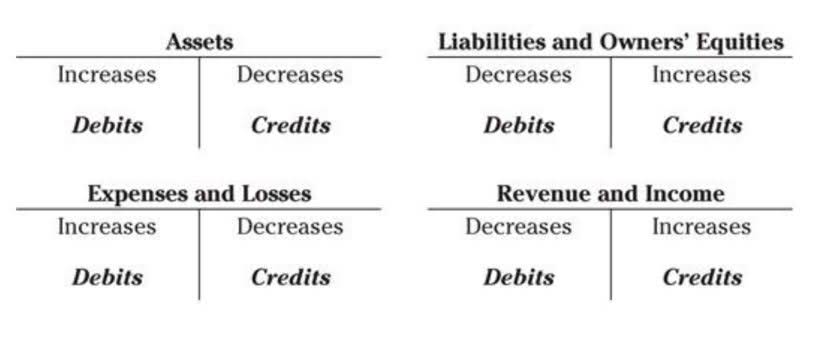
Digital payment is the way of today, and tomorrow, and that means any business, large or small, needs to take advantage of electronic transactions. This concept is applicable to every digital transaction out there, and for merchants, businesses, and consumers it’s important to know how electronic money transfers work. Person-to-person or “P2P” payments allow a consumer to send money to another person without needing to write a check, swipe a physical card, or exchange cash. Depending on the payment provider, a P2P payment can be initiated from a consumer’s online bank account portal, prepaid account portal, or mobile application. An EFT is a financial transaction processed electronically, while an ACH transfer is a specific type of EFT sent using the Automated Clearing House.
- Phone payments are convenient because you can make them anywhere, anytime.
- Please be aware that we generate revenue through partnerships with selected money transfer providers listed on our site.
- While wire transfers have long been used for business-to-business (B2B) payments, more businesses are evaluating alternatives due to the high fees.
- This can include wire transfers, direct deposits, and automated clearinghouse (ACH) transfers.
What is a one-time EFT payment?

Again, these risks are totally gone with an EFT solution, like a credit card.EFT’s established retained earnings balance sheet safety is one of the best benefits. Besides cost, secure business establishes entities as trustworthy, resulting in repeat sales and long-term relationships. Electronic fund transfers facilitate the quick and safe movement of money electronically. Protect your PIN and only use apps you trust to send and receive money. Review your bank and credit card statements regularly to catch potential fraud early and limit your liability.
- Read on for everything you need to know about sending and receiving international wire transfers with First Horizon.
- Whether through reduced costs, faster payments, or better customer experiences, EFTs are becoming more than just a way to move money—they’re becoming a strategic asset.
- Additionally, the infrastructure behind wire transfers is more complex, relying on the Federal Reserve Wire Network (Fedwire) or international equivalents like SWIFT.
- Likewise, if you’ve used an app on your smartphone to send money to a friend for a restaurant tab, you’ve used EFT technology.
- Here are two examples to help you understand how money moves across payment networks.
What to Do if You Have an EFT Problem?

While wire transfers have long been used for business-to-business (B2B) payments, more businesses are evaluating alternatives due to the high fees. That’s why ACH remains the preferred choice for non-urgent transactions, given electronic funds transfer its reliability at a lower cost. EFTs offer consumers security under the EFTA—if they notify their bank in a timely manner. Financial institutions must adopt the practices outlined in the EFTA and have error resolution procedures in place for unauthorized transfers. The EFTA also sets liability limits for any financial losses consumers may incur from unauthorized transfers.
Error Resolution: Unauthorized EFTs
- Troutman Pepper Locke helps clients solve complex legal challenges and achieve their business goals in an ever-changing global economy.
- Usually, the payee will supply their information, typically a card number, to the recipient over the phone.
- Transferring money overseas will usually cost more than transferring funds to a domestic bank account, with providers usually adding a margin to the exchange rate.
- Signed into law in 1978, the Electronic Fund Transfer Act (EFTA) is meant to protect people who use EFTs.
- Digital payment is the way of today, and tomorrow, and that means any business, large or small, needs to take advantage of electronic transactions.
- Read on for everything you need to know about sending and receiving international wire transfers with Wells Fargo.
- With a long track record of successful litigation results across the U.S., both bank and non-bank clients rely on him for comprehensive advice throughout their business cycle.
For example, if your bank account is hacked, theoretically, someone could make unauthorised EFT payments from your account. However, banks typically have strong security measures to protect against fraud. This guide covers what you need to know about electronic payment vs wire transfer — and we’ll also introduce Wise as a smart way to send money overseas with low fees and a fair exchange rate. Like with all financial transactions, it’s important to make sure you’re using a company that you know and trust, or come from a reliable recommendation. All transfer providers and banks recommended by MoneyTransfers.com are registered and fully regulated in their base country.
- While ACH payments can be batched and processed in cycles, wire transfers demand immediate attention, often involving human verification.
- The internet version of tapping, swiping, or inserting a card involves manual entry into a point of sale field, followed by clicking a payment button.
- The CFPB is responsible for enforcing the EFTA and investigating complaints about electronic fund transfers.
- Indeed, EFT is a window into worldwide business, giving the same opportunities to small tech start-ups as large corporations.
- The process allows the person sending money to initiate a transfer from an originating account.

Called an 800 number to order a kitchen gadget you saw on virtual accountant a TV infomercial? Whether you know it or not, you’ve probably been a part of many electronic funds transfers (EFTs). You can make immediate transfers from your personal and business credit card to your linked checking or savings account.
